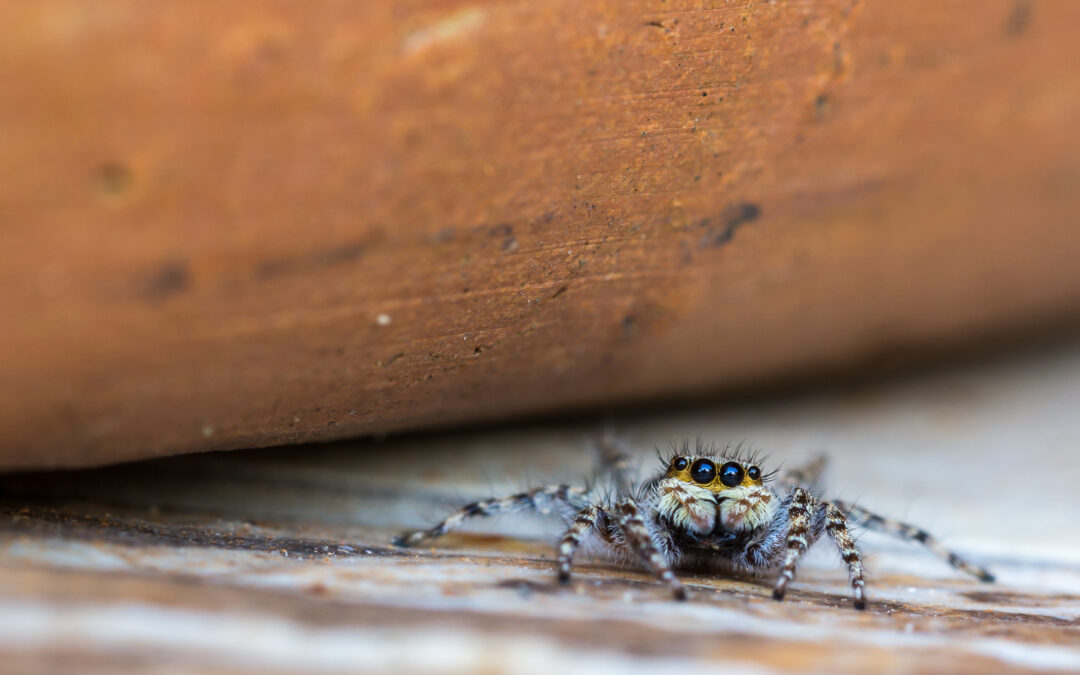As summer arrives in Mt. Juliet, TN, there’s the inevitable increased activity of various spider species! While spiders are essential for controlling other pests, they can become a nuisance and even a danger when they start invading our homes. Armor Termite and Pest Control understands the concerns of Tennessee homeowners regarding spiders, and we’re here to provide valuable information on the types of spiders commonly found in Mt. Juliet, why they can be problematic, and how you can prevent infestations.
Types of Spiders Found in Mt. Juliet, Tennessee
Not all spiders in Mt. Juliet can be dismissed as “just spiders”. Some are small, some can be large, and while most are harmless, a few can be potentially dangerous if they bite. Let’s take a closer look at the local spider population:
Brown Recluse Spiders
- Description: Brown recluse spiders are notorious for their venomous bites, which can cause serious health issues, including tissue damage and necrosis. They are identified by their dark brown bodies and violin-shaped markings on their heads, have 6 eyes whereas most spiders have 8 eyes. These spiders typically hide in dark, secluded areas like wall voids, closets, attics, bookcases, under tar paper, insulation and basements. Recluses also have an unusual way the sit with 3 Pair of legs forward and one pair behind them. They rarely bite unless threatened or injured.
- Action: If bitten, seek immediate medical attention.
Southern Black Widow Spiders
- Description: The egg sac is grey and the spiderlings that emerge have abdomens that have white strips on a black or dark background. Recognizable by their shiny black bodies and red hourglass markings, black widows are another venomous spider species found in Mt. Juliet. They prefer undisturbed areas such as woodpiles, sheds, garages, shoes in garages, or boxes in garages and unused outdoor equipment. While the male black widow is much smaller and harmless, the female’s bite can cause severe pain, muscle cramps, and nausea.
- Action: It is only rare that results in rotting flesh, most bites are self- healing, however seek medical attention.
Wolf Spiders
- Description: Often mistaken for tarantulas due to their large, hairy appearance, wolf spiders are excellent predators in your yard but can wander indoors in search of prey. The Eye pattern is 4-2-2 which helps with identification. Wolf spiders will bite, there large fangs depending on size may be painful but will be short lived.
- Action: Generally harmless but can cause discomfort if bitten.
Jumping Spiders
- Description: Known for their compact bodies and ability to jump up to 25 times their size, jumping spiders are small (1/8 to 3/4 of an inch) and often black or brown. Their venom is not strong enough to harm humans, though their bites can cause minor irritation.
- Action: Generally harmless, but avoid handling them. They are free roaming hunters so they are rarely inside homes. If they do come inside the will mostly likely be found near a door or window sill. They do spend a lot of time in vegetation around homes. These spiders do help with other insects if outside should be left to hunt other spiders and insects.
Common House Spiders
- Description: As their name suggests, these spiders are frequently found indoors. They are not harmful to humans but can create unsightly webs that are difficult to remove, especially on textured surfaces.
- Action: Regular cleaning can manage their presence.
When Should I Be Concerned About Spiders In My Home?
While having one or two spiders in your home might not be a huge concern, an increase in spider sightings can indicate a potential infestation. Besides the health risks from venomous spiders, their webs can collect dust and debris, creating an unclean appearance. Regular sightings of spiders may require long-term solutions to keep them from becoming permanent residents in your home.
Spider Prevention Tips for Mt. Juliet, Tennessee
- Seal Entry Points: Inspect your home for cracks and gaps, especially around doors, windows, and the foundation. Sealing these entry points can prevent spiders from entering.
- Maintain Cleanliness: Spiders are attracted to food and moisture. Keep your home clean, store food in airtight containers, and promptly fix any leaks or plumbing issues.
- Reduce Clutter: Clutter provides hiding spots for spiders. Regularly clean and organize your home, especially basements, attics, closets, and garages.
- Store in Totes: Store items in totes not boxes. Boxes have holes and cracks that allow spiders in and out.
- Remove Webs Regularly: Regularly remove webs using a vacuum or broom to discourage spiders from settling in your home.
- Use Natural Repellents: Essential oils like peppermint, tea tree, or citrus can deter spiders. Spray these around entry points and common spider areas.
- Trim Vegetation: Trim bushes and shrubs away from your home to reduce the likelihood of spiders finding their way inside.
Why Choose Armor Termite and Pest Control
While DIY methods can be effective for minor issues, professional pest control offers several advantages:
- Expert Knowledge: Our pest control professionals have the expertise to identify and treat various pests effectively.
- Effective Treatments: We use effective treatments that target pests while minimizing risks to your family and pets.
- Long-Term Prevention: Regular professional treatments provide long-term protection against pests, giving you peace of mind.
Contact Armor Termite and Pest Control
If you’re dealing with a spider problem or want to prevent future infestations, contact Armor Termite and Pest Control today. Our team of experienced professionals is here to help you keep your home safe and pest-free.

